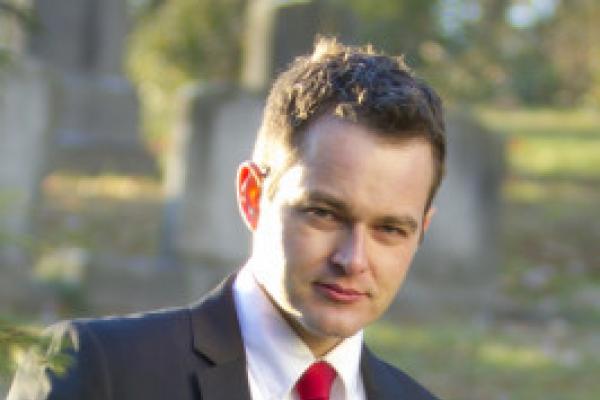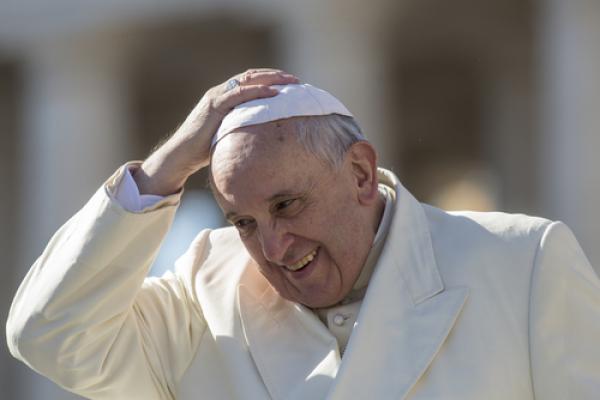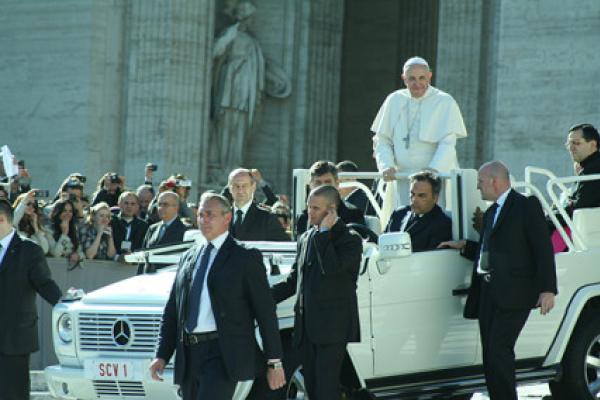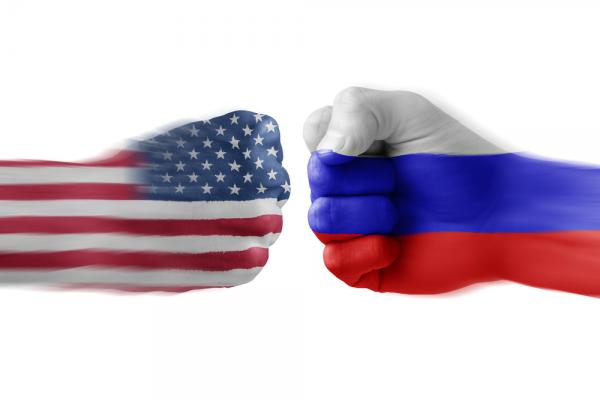Most days, Caleb Wilde is a funeral director, discreetly making burial arrangements and guiding survivors in a time of loss.
Wilde is an undertaker with a media presence seemingly tailor-made for the age of disclosure.
His blog, “Confessions of a Funeral Director” has more than 80,000 monthly readers, a Twitter following of more than 16,000 and a Facebook page that attracts well over half a million visitors a week.
Pink princess pajamas. Jeans and a t-shirt. Sweatpants and a baggy sweater.
When Twitter user Christina Fox (@Steenfox) asked her followers, “What were you wearing when you were assaulted?” some answered with these clothes.
Fox prompted the question after reading a story about a 60-year-old woman who was raped by her grandson.
Today the world celebrates Pope Francis’ first year. Notice I didn’t say the church is celebrating, but the world. The pope has graced the covers of every magazine from TIME to Rolling Stone over the past year. People all over the world are delighted by the breath of fresh air he has brought. His popularity has moved beyond Catholics to Christians of all kinds, believers from other faith traditions, agnostics, and the “nones,” who are very drawn to this pope who emphasizes love and simple living.
But the pope said last week that he is not a “ superman” and does not want to be a celebrity. He is just trying to talk and live like Jesus, a point he makes repeatedly to shrug off his media darling standing. From the moment he took the name Francis, he made clear his, and thus the church’s priorities: the poor, peace, and the creation. Francis is now challenging the most powerful people and places in the world, as well as a popular culture that mostly asks how we can serve ourselves.
Pope Francis is right: it is not about him; it’s about the Christ he follows. Everything Francis is saying and doing is aimed at pressing this question: Are Christians going to follow Jesus or not? That should be the question on the first anniversary of this new pope. Are we Christians ready and willing to follow Jesus? How can we then serve the world?
In recent surveys, the religious “nones” — as in, “none of the above” — appear to lead in the faith marketplace. In fact, “none” could soon be the dominant label U.S. adults pick when asked to describe their religious identity.
And, researchers say, this is already making nones’ attitudes and opinions less predictably liberal on social issues.
So what’s it like to come to work every day when your boss is the pope?
Much also depends on whether you are one of the approximately 3,500 (mostly Italian) lay people in the Vatican’s workforce or one of the 1,100 or so cardinals, bishops, priests, or religious brothers and sisters who tend to occupy decision-making positions and are deeply invested in the policies that Francis adopts.
That second group, often defined by their ideologies and rivalries, tends to draw the most attention, given the high stakes and fierce passions involved.
It’s sometimes cliché for Christians to warn about the dangers of idolizing wealth and money, but the negative impact it can have on our faith is often more subtle than we realize. Here are a few ways it covertly manipulates our spirituality
The news coverage of international conflicts can be very disappointing from a mimetic perspective. When conflicts escalate into violence as in Syria or the Ukraine, news outlets rush to cover the hostilities. They give us the facts on the ground, or rumors thereof, accompanied by an almost mindless report of what each side is saying by way of self-justification. However, if you listen to their rhetoric with mimetically tuned ears, which happens after spending time here at Raven, you realize that their rhetoric is all sound and fury signifying nothing. Unfortunately, it is this “nothing” that usually makes the headlines.
Major outlets like the New York Times rarely give as good an analysis as my colleague Adam Ericksen did last week. Speaking of the crisis in Ukraine, Adam said that we often think conflict is the result of differences. But the truth is that rivals resemble each other in often surprising ways. They are in conflict because they share the same desires and so are locked in a competition for something that they cannot or will not share. In the case of the conflict over Crimea, the “thing” is not the region but power and prestige. Adam explains:
Russia’s desire for power is mimetic, or imitative, and modeled on its rival for power, the United States. Russia wants what the United States has — the prestige of being a global super power — and Russia is willing to use the same methods that the United States has used to gain and sustain that prestige — violence.





